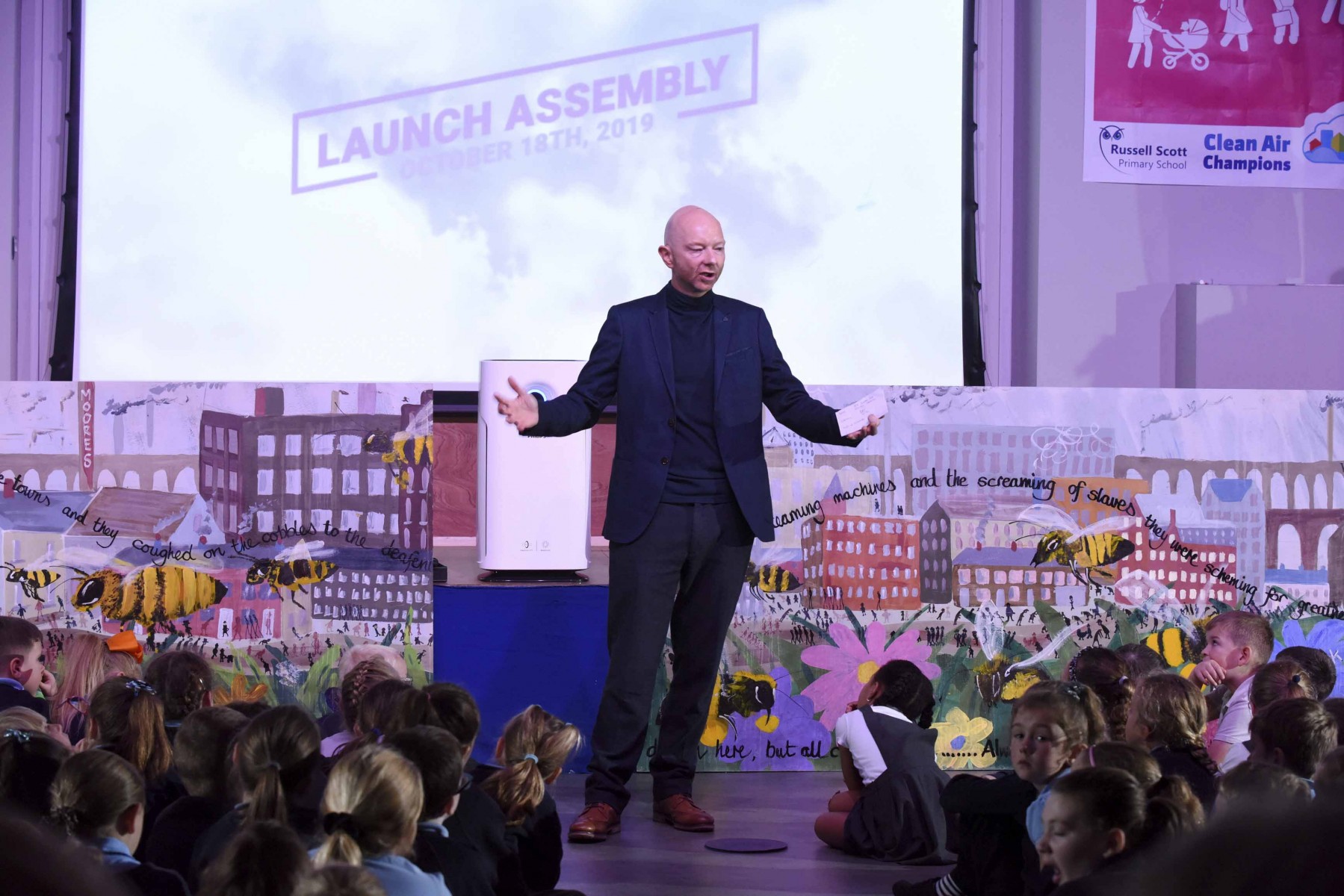
First of its kind ‘clean air for schools’ programme launched in Greater Manchester
- Programme involves the installation of air purifiers in inner city schools to clean toxic indoor air, combined with classroom activities on how communities can cut both indoor and outdoor air pollution
- Live monitoring of air quality in schools alongside analysis of how cleaner air affects pupil health, educational attainment and improved knowledge and change behaviour around air quality
- This unique collaboration of industry, charity, public sector and academia will clean the air children breathe in schools to a level that meets World Health Organisation standards
- The results of first of its kind research will be published in Spring 2020, which will provide a blueprint for the programme to replicated across other regions in the UK
Greater Manchester schools are set to trial clean air monitoring systems across Greater Manchester Schools to determine how varying levels of air quality affects school children. The University of Manchester has partnered with The Philips Foundation and Global Action Plan (GAP) to launch the ‘Clean Air for Schools programme’.
The programme is the largest of its kind to be launched in the UK, with 20 participating schools and 6000 students to be included in the 10-month study. The programme aims to support schools to improve air quality as well as understand for the first time the impact of air pollution in schools by studying the varying levels of air quality in classrooms and how this affects school children.
Through tailor-made teaching resources for schools that support the national curriculum and the installation of air purifiers in classes, the Philips Foundation and GAP will work with The University of Manchester as part of a concurrent research project to monitor the changes in air quality from purification and education. This is whilst purifying the air of the classrooms to remove toxins, viruses and pollutants.
The programme will investigate changes in children’s health and academic performance. The findings of the research will inform a groundbreaking framework designed to help schools across the UK create clean air plans to reduce pollution and protect students.
We’re proud today to be launching the ‘Clean Air for Schools’ programme here in Greater Manchester. Drawing on research through our new air quality supersite and Manchester Urban Observatory, we’re excited to be a part of a truly cross-sector collaboration that brings together the skillsets of the private sector, charity, local public sector and our University right here in our city.

The University of Manchester will provide air monitoring equipment and analysis to help independently understand the state of air pollution in schools, analysing the levels of pollutants in including PM 2.5, PM 10, CO2, NOx and Ozone. The team will also track for any improvements that arise from behaviour change amongst the children, teachers and parents following the use of educational activities about reducing air pollution.
According to analysis carried out by the Greater Manchester Combined Authority, nitrogen dioxide can be linked to 1,200 deaths a year in Greater Manchester. Air pollution causes heart and lung diseases and can be linked to low birth weight and impedes children’s lung development – making the issue of air pollution a pressing one for the city.
The launch of the programme took place this morning, 18 October 2019, at Russell Scott Primary School in Denton, one of the 20 participating schools. The launch saw the Philips Foundation, GAP, and representatives from The University of Manchester address students, teachers and members of the Greater Manchester Combined Authority to explain how students will be involved.
Dr Julian Skyrme, Director of Social Responsibility at The University of Manchester said at the launch fo the programme: “We’re proud today to be launching the ‘Clean Air for Schools’ programme here in Greater Manchester. Drawing on research through our new air quality supersite and Manchester Urban Observatory, we’re excited to be a part of a truly cross-sector collaboration that brings together the skillsets of the private sector, charity, local public sector and our University right here in our city.
“The programme will add to the growing body of research into air quality and its impacts on communities – and through this collaboration we will be able to make a practical difference to what schools and communities across the UK can do to tackle air quality.”


